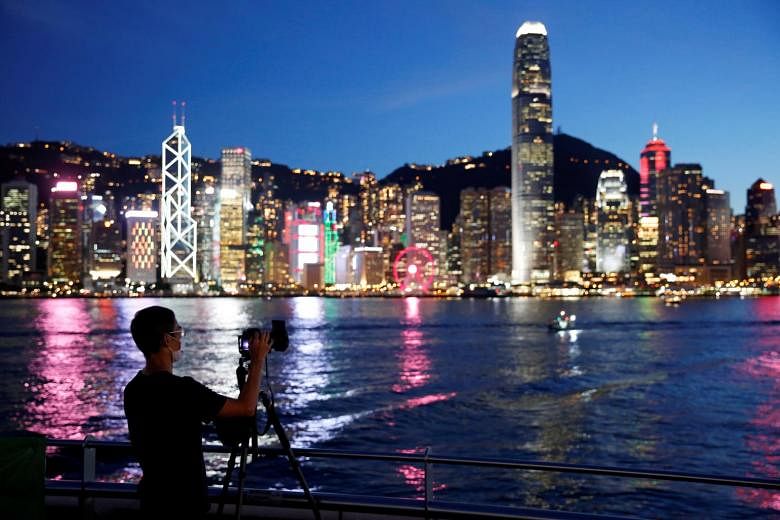The pandemic may have wrapped its tentacles around Hong Kong's tourism industry, but the sector is expected to get its bounce back once travel bubbles are in place, a top tourism official has said.
Mr Dane Cheng, executive director of the Hong Kong Tourism Board (HKTB), is optimistic that the tourism industry will recover quickly due to pent-up demand and the fact that the city is not under a full lockdown.
"The No. 1 issue is that you want to make sure that the Covid situation is well-contained before you can open up (under a travel bubble)."
"When you say open up, it is not just about your visitors coming in, but it is also about your own residents travelling out, and it is not just about leisure travel, it is also about business travel," said Mr Cheng, who added that people are prudent and want to know that their governments can contain the situation with travellers arriving.
No one in Asia has achieved this yet, and to do so, the government policy on this will be based on science and medical evidence, the 57-year-old said in an interview with The Straits Times.
Singapore and Hong Kong could be the first to try out a travel bubble as both cities said on Thursday they had agreed on a preliminary deal in which some of the key features include having designated flights between the two cities without transit passengers and doing away with mandatory quarantine on both sides if visitors test negative.
With borders mostly shut and air travel down, Mr Cheng and his team have agonised over how HKTB can stimulate the economy, which has slid into a recession. Hong Kong's economy is projected to shrink by between 6 per cent and 8 per cent this year.
Tourism-related industries in the city accounted for 4.5 per cent of the economy in 2018, a figure that Mr Cheng said has been wiped out this year.
In mid-June, after a second wave of the pandemic, HKTB rolled out for the first time a domestic tour campaign for locals to explore and rediscover the city. But the programme was suspended when a third wave of infections started in July. The city has only recently emerged from the third wave.
Also on pause is HKTB's plan to encourage cross-industry and cross-trade spending by letting 10,000 people claim free local tours if they spend HK$800 (S$140) in one receipt on retail or dining.
The fluidity of the situation has made it harder to plan activities, but it has also pushed industry players to experiment with new formats and prepare for the reopening of the travel industry, said Mr Cheng.
To this end, HKTB, together with the Hong Kong Quality Assurance Agency, last week launched a standardised protocol for hygiene and anti-epidemic measures for tourism-related sectors.
The voluntary initiative is a move by officials to boost confidence in businesses such as hotels, malls and tour operators.
Over the longer term, Hong Kong's tourism industry would focus on acting as a connector of cities in southern China for both international and domestic visitors.
Mr Cheng noted that based on pre-pandemic data, almost 80 per cent of the total visitors coming to Hong Kong are from the mainland.
In particular, 60 per cent of the total visitor arrivals are from Macau and Guangdong province, which together with Hong Kong form the Greater Bay Area.
"So, it would be like that for a lot of visitors in the future - when they come to Hong Kong, it is not just coming to Hong Kong, but they would also make a side trip using the high-speed rail or mega bridge to the Greater Bay Area."
Citing Shanghai as an example, he said visitors there see it as an international gateway and would naturally go to Ningbo, Hangzhou and other nearby places from the city.
He sees Hong Kong in a similar role, with efforts to promote the Greater Bay Area overseas as "it has a lot to offer".


